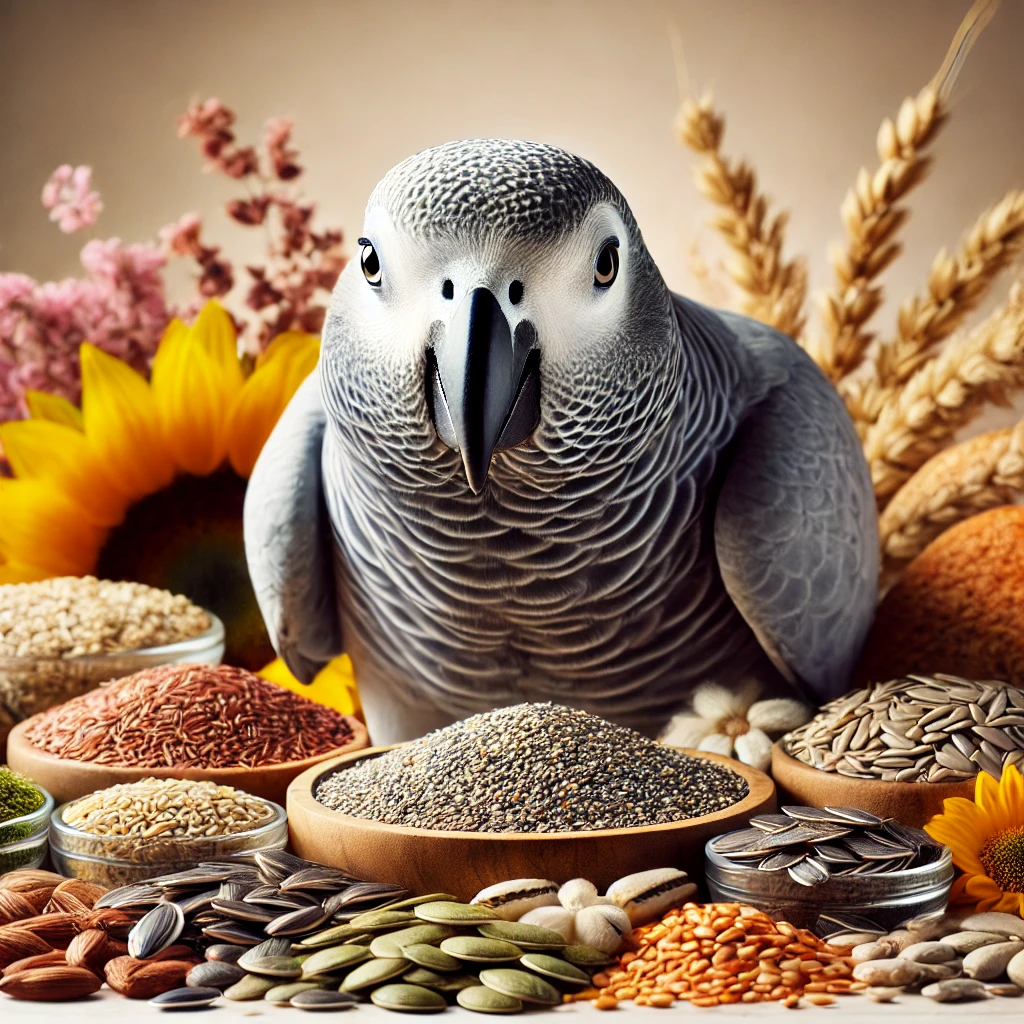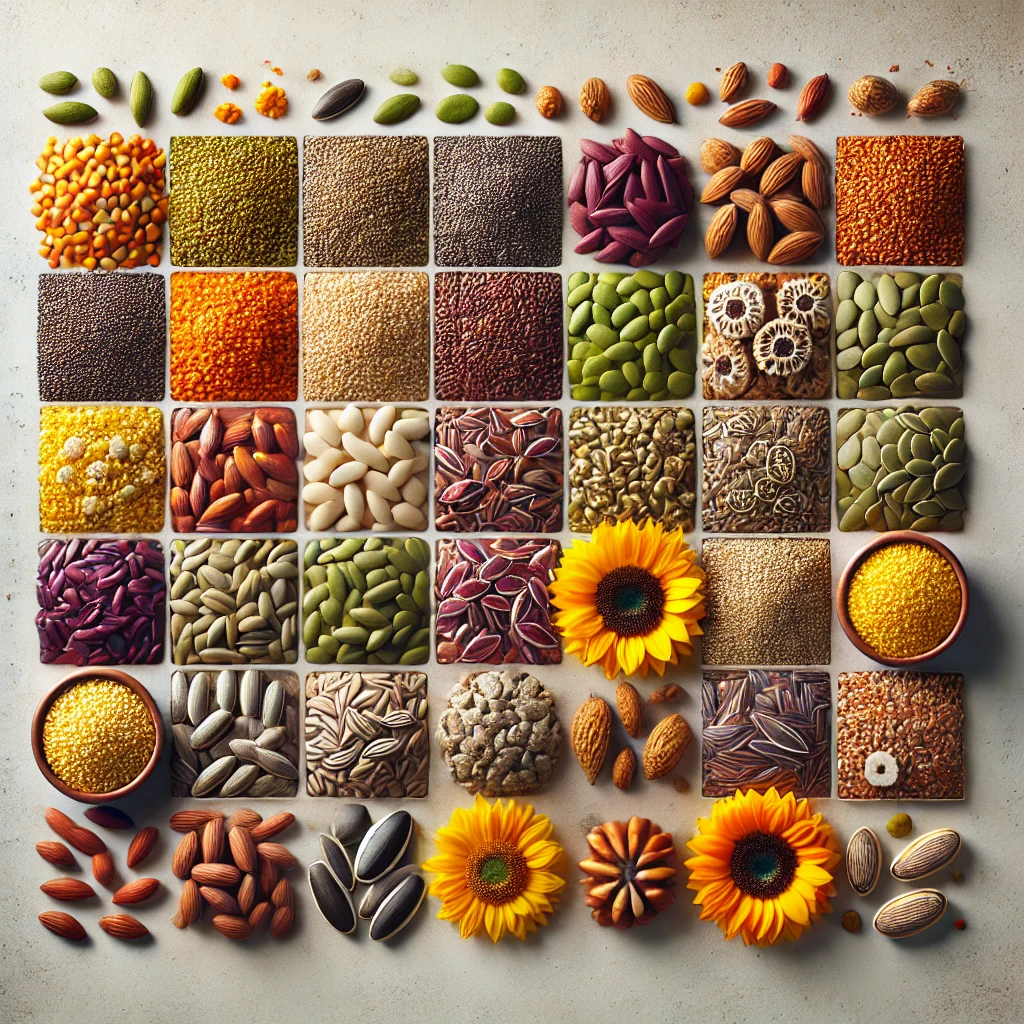Feeding captive parrots is one of the most debated topics among avian enthusiasts and experts. Central to this debate is the role of seeds. While some advocate for a diet consisting solely of pellets and fresh produce, others believe seeds can be a valuable part of a balanced diet. But what does the science say? This article will explore the nutritional composition of seeds, their benefits and risks, and how to incorporate them appropriately into a parrot’s diet.

In the wild, seeds are a significant part of the diet for many parrot species. However, their availability and nutritional content vary drastically from those found in commercial seed mixes. Wild seeds often come from native plants and are typically less calorie-dense, with a higher concentration of fiber and micronutrients. Captive parrots, on the other hand, are often offered highly processed or hybridized seeds bred for agricultural purposes, which can be excessively fatty and lack vital nutrients.
Dr. Susan Clubb, a renowned avian veterinarian, explains, “While seeds are part of many parrots’ natural diets, they are rarely consumed in isolation. Wild parrots also eat fruits, flowers, nuts, bark, and even insects, which provide a far more diverse nutrient profile.”
Seeds are small nutritional powerhouses. They are primarily composed of:
Benefits of Seeds

The ideal proportion of seeds in a parrot’s diet depends on the species, age, and activity level. A broad guideline, supported by avian veterinarians, is as follows:
Some seeds are nutrient-dense and low in fat, making them suitable for daily feeding. These seeds can be mixed with fresh vegetables, grains, or pellets for a balanced diet.
| Seed Name | Nutritional Benefits | Why They’re Good |
|---|---|---|
| Hemp Seeds | High in omega-3 and omega-6 fatty acids, complete protein, antioxidants | Promote feather health, reduce inflammation, and support heart health |
| Chia Seeds | Rich in fiber, omega-3 fatty acids, and calcium | Improve digestion, feather condition, and bone strength |
| Flax Seeds | High in omega-3 fatty acids (ALA) and fiber | Support heart health, improve digestion, and maintain glossy feathers |
| Millet | High in carbohydrates, B vitamins, and magnesium | Ideal energy source for small parrots like budgies and cockatiels |
| Quinoa | Complete protein, rich in iron and magnesium | Supports muscle health, energy production, and immune function |
| Amaranth Seeds | Gluten-free, high in protein, lysine, and iron | Support muscle development, feather quality, and oxygen transport in the blood |
| Buckwheat | Gluten-free, rich in protein, manganese, and magnesium | Support muscle health, energy metabolism, and stress reduction |
| Basil Seeds | High in fiber, calcium, and iron | Aid digestion, improve bone health, and help regulate blood sugar levels |
| Nigella Seeds | Rich in antioxidants, iron, and essential oils | Support immune health, reduce inflammation, and improve digestion |
| Alfalfa Seeds | Rich in vitamins C, K, and folate | Enhance immune function and provide antioxidants for overall health |
| Wheatgrass Seeds | High in vitamins A, C, E, chlorophyll, and amino acids | Boost immune health, detoxify the body, and promote vibrant feathers |
Other seeds are higher in fat and calories, so they should be given sparingly as treats or supplements. These are ideal for foraging activities or training sessions.
| Seed Name | Nutritional Benefits | Why They’re Good |
|---|---|---|
| Sunflower Seeds | High in vitamin E, selenium, and healthy fats | Provide energy, support cell repair; use sparingly as a treat |
| Safflower Seeds | Lower in fat compared to sunflower seeds | Less calorie-dense option for energy, especially for birds prone to obesity |
| Pumpkin Seeds | Rich in zinc, magnesium, and healthy fats | Promote feather health, reproductive health, and immune function |
| Sesame Seeds | High in calcium, copper, and zinc | Strengthen bones, support connective tissues, and maintain healthy skin |
| Fennel Seeds | Contain antioxidants, dietary fiber, and essential oils | Aid digestion, reduce bloating, and freshen breath |
| Cumin Seeds | High in iron and antioxidants | Support immune function and improve digestion |
| Poppy Seeds | Contain calcium, iron, and dietary fiber | Promote bone health and support digestion |
Sprouting seeds transforms their nutritional profile. During the sprouting process, the seed’s stored energy is converted into vitamins and enzymes, making them more digestible and nutrient-rich. Sprouted seeds are also lower in fat than dry seeds, making them a healthier option.
Mixing seeds into a chop of fresh vegetables and grains encourages parrots to eat a more balanced diet. This strategy prevents them from selectively eating seeds.
Seeds can be reserved for training sessions or foraging toys. This not only prevents overfeeding but also encourages natural behaviors.
Dr. Karen Becker advocates for moderation, stating, “Seeds, when offered sparingly and alongside a variety of fresh foods and pellets, can provide enrichment and nutrients.”
Dr. Greg Burkett echoes this sentiment, emphasizing that “the key to parrot nutrition is variety. No single food group—whether pellets, seeds, or produce—can meet all of a bird’s dietary requirements.”
Seeds can play a valuable role in a parrot’s diet, but they should never dominate it. By carefully selecting nutrient-rich seeds, offering them in moderation, and combining them with pellets, vegetables, and fruits, you can ensure your parrot receives a balanced and enriching diet.
As always, consult an avian veterinarian to tailor your parrot’s nutrition plan to their specific needs. Remember, a healthy diet is the foundation of a long, happy life for your feathered companion.
